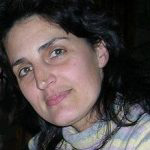Is foster care a profession or a mission? Are we ready to take care, protect and give our love to a child temporarily? Do people have to possess certain skills and qualification, in order to become foster parents? Do children in foster care have any specific needs? How the system of foster care works in Bulgaria? Pokrov Foundation has been looking for the answers of those questions in six consecutive meetings dedicated to foster care. The meetings are held each Saturday until February 18 in Kashta za Ptitsi (Birdhouse) bookshop in Sofia. They are directed towards people who have decided to open their homes and hearts for children deprived of parental care. Alina Vodenicharova who has been working actively on the problems related to the early development of children deprived from parental care and children with special needs is a guest lecturer at those meetings.
 “The initiative of Pokrov Foundation envisages free talks and discussions on foster care. All little children deprived of parental care need a life that is very close to their family environment. Foster care is both a mission and a job. It is associated with the accommodation of children, who for some reasons cannot live with their biological parents, with close relatives or foster parents. Foster parents have the task to bring those children up, love them and take good care of them for a certain period of time. Foster care differs from adoption, because children are accommodated with their foster parents temporarily. However, that fact should not influence the attitude of the foster parents towards foster children.”
“The initiative of Pokrov Foundation envisages free talks and discussions on foster care. All little children deprived of parental care need a life that is very close to their family environment. Foster care is both a mission and a job. It is associated with the accommodation of children, who for some reasons cannot live with their biological parents, with close relatives or foster parents. Foster parents have the task to bring those children up, love them and take good care of them for a certain period of time. Foster care differs from adoption, because children are accommodated with their foster parents temporarily. However, that fact should not influence the attitude of the foster parents towards foster children.”
Over 2,000 Bulgarian children have been accommodated in foster families so far. In Alina Vodenicharova's words, people must work in team, in order to avoid perturbations related to the accommodation of children in foster care.
“The social services, the well trained foster parents, the organizations supporting those parents, as well as the social institutions which support the biological parents must work in team. The main purpose of our efforts is to allow foster children return to their real parents or to become adopted.”
Many foster families take care of those children for a long period of time, because their biological parents refuse to sign adoption consent forms, but meanwhile fail to overcome the crisis which made them send their children to foster families. Children have different destiny and foster care must take that fact into consideration:
“I am happy with that fact that in the past five years or so the Bulgarian people have been opening their minds and hearts for this type of social activity. That mission in fact aims at rescuing children, especially in their early age. Foster care for children in risk has been developing well, although some improvements can be made. We closed the big social institutions for children aged 3 or under and we are about to solve that problem permanently. This is really a huge step forward. I worked for some time abroad and know that foster care in Bulgaria has been developing at a very good level.”
English version: Kostadin Atanasov
On the night of 19-20 January - the celebration of Yordanovden (Epiphany) and Ivanovden (St. John's Day) in the Julian calendar - the northwestern town of Kula will host the traditional "Kapachi" ("Bathing") ritual. This is a unique event, with a..
Interest in the exhibitions and events at the Regional History Museum in Ruse on the Danube is growing. In the last 12 months, it had 95 966 visitors, which is 5 209 more people than in 2023, which is more than in the pre-pandemic years, the institution..
Aleksandar Vučić offers the opposition an advisory referendum on his presidency Serbs do not believe that the solution to the political crisis in the country could be an "advisory referendum" on confidence in the president, as requested by the..
The Federation of European Carnival Cities has declared Pernik a global center of masquerade traditions. 16 years ago, Prenik was named the European..
On 25 January 1935, Tsar Boris III signed the decree establishing the Bulgarian National Radio. The document, which officially marked the beginning of..

+359 2 9336 661
